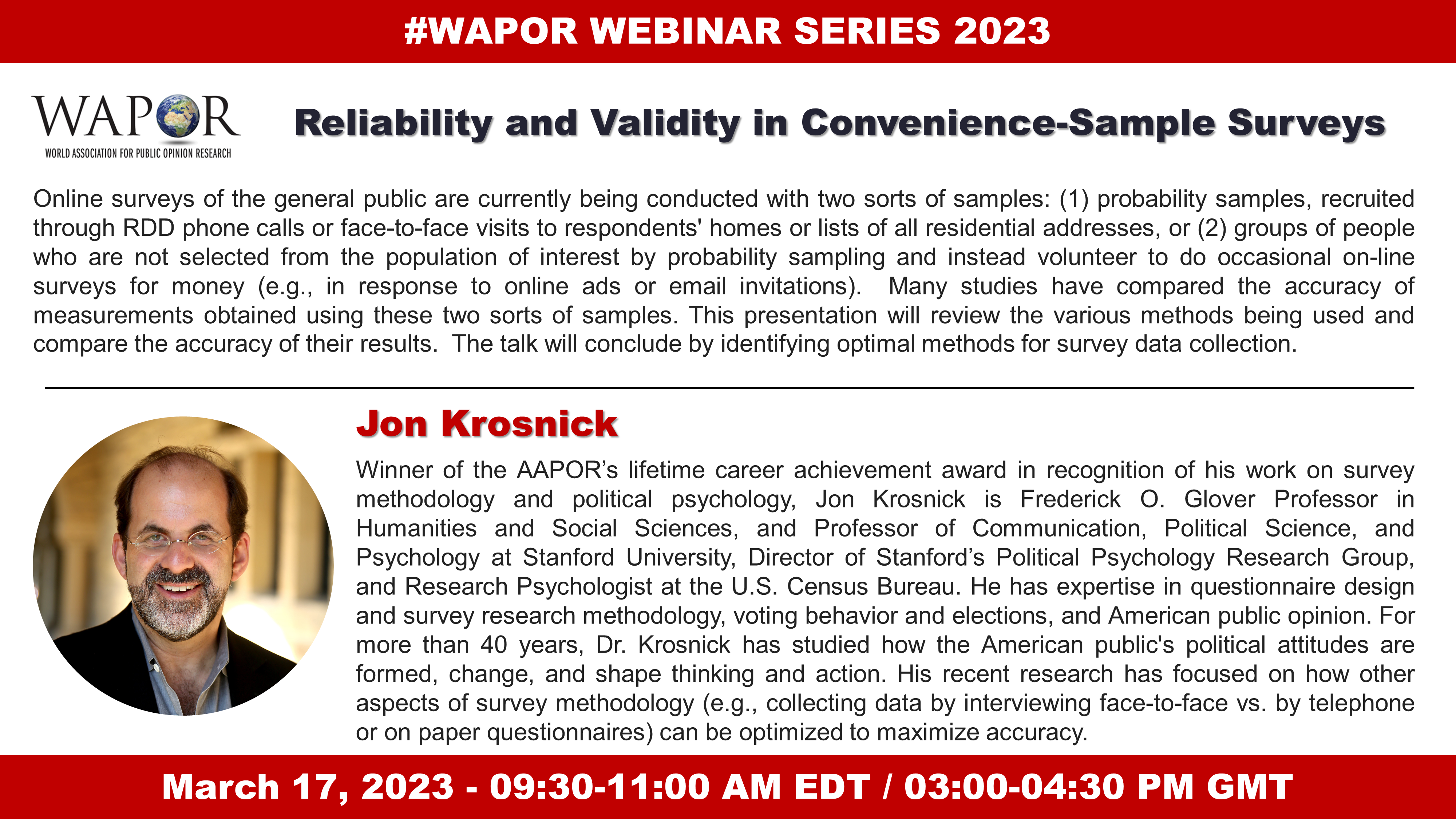March 2023 – Reliability and Validity in Convenience-Sample Surveys
In 2023, WAPOR resumes our education program with a new series of webinars on public opinion research methodology. Our second webinar of 2023 will take place on Friday, March 17 at 09.30-11.00 AM EST. Our excellent speaker, Jon Krosnick, Frederic O. Glover Professor in Humanities and Social Sciences, Professor of Communication, Political Science, and Psychology at Stanford University, will deliver a talk on “Reliability and Validity in Convenience-Sample Surveys”. Attendance is free of charge; WAPOR membership is not required. Gary Langer (Langer Research Associates, USA), WAPOR Education Committee member, will moderate the discussion.
VIDEO
Reliability and Validity in Convenience-Sample Surveys
Online surveys of the general public are currently being conducted with two sorts of samples: (1) probability samples, recruited through RDD phone calls or face-to-face visits to respondents’ homes or lists of all residential addresses, or (2) groups of people who are not selected from the population of interest by probability sampling and instead volunteer to do occasional on-line surveys for money (e.g., in response to online ads or email invitations). Many studies have compared the accuracy of measurements obtained using these two sorts of samples. This presentation will review the various methods being used and compare the accuracy of their results. The talk will conclude by identifying optimal methods for survey data collection.
Jon Krosnick
Winner of the American Association for Public Opinion Research’s lifetime career achievement award in recognition of his work on survey methodology and political psychology, Jon Krosnick is Frederick O. Glover Professor in Humanities and Social Sciences, and Professor of Communication, Political Science, and Psychology at Stanford University, Director of Stanford’s Political Psychology Research Group, and Research Psychologist at the U.S. Census Bureau. He has expertise in questionnaire design and survey research methodology, voting behavior and elections, and American public opinion. He has taught courses for professionals on survey methods for decades around the world and has served as a methodology consultant to government agencies, commercial firms, and academic scholars. His recent research has focused on how other aspects of survey methodology (e.g., collecting data by interviewing face-to-face vs. by telephone or on paper questionnaires) can be optimized to maximize accuracy. He is an expert on the psychology of attitudes, especially in the area of politics and co-principal investigator of the American National Election Study, the nation’s preeminent academic research project exploring voter decision-making. For more than 40 years, Dr. Krosnick has studied how the American public’s political attitudes are formed, change, and shape thinking and action. As an expert witness, he has evaluated surveys and has conducted surveys to inform courts in cases involving election law, consumer deception, unreimbursed expenses, uncompensated overtime work, exempt/non-exempt misclassification, patent/trademark violation, health effects of accidents, consequences of being misinformed about the results of standardized academic tests, economic valuation of environmental damage, change of venue motions, and other topics.



